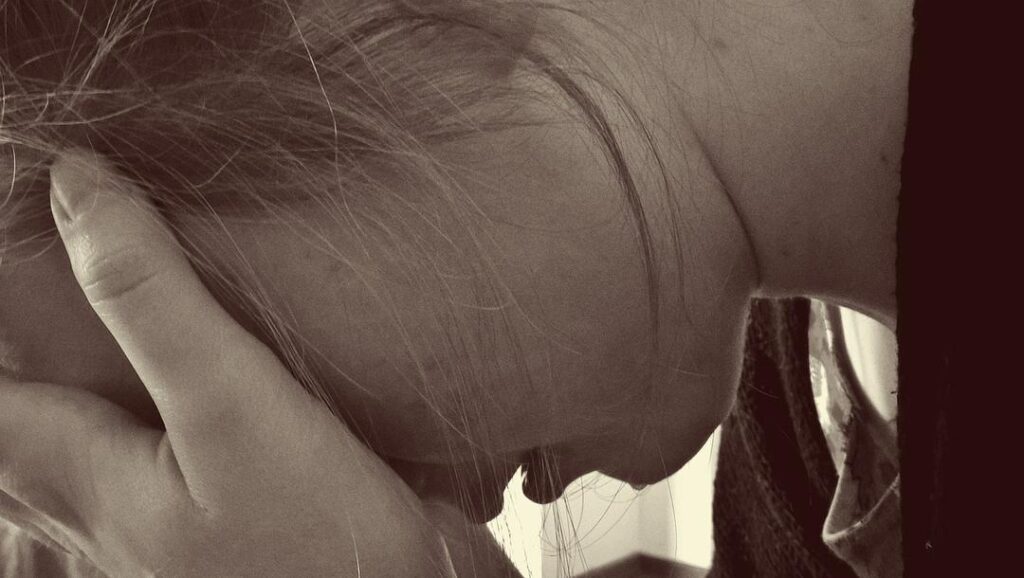Ghana Takes A Progressive Step In Decriminalizing Suicide
As an important step towards prioritizing mental health and well-being, Ghana has recently made significant progress by decriminalizing suicide.
The decriminalization of suicide reflects a growing international recognition that treating suicide as a criminal act only perpetuates stigma and hinders effective intervention and support systems. In this article, we will explore Ghana’s decision to decriminalize suicide, its potential impact on mental health, and the broader implications for the country’s approach to mental health and well-being.

For many years, Ghana’s laws treated suicide as a criminal offense under Section 57 of the Criminal Offences Act 1960, Act 29, which not only failed to address the root causes of suicide but also exacerbated the stigma surrounding mental health.
Individuals who attempted suicide were at risk of being incarcerated, facing legal consequences instead of receiving the vital mental health support they needed. Such an approach hindered open dialogue, access to care, and public understanding of mental health issues.

In a significant move towards rectifying this situation, Ghana’s Parliament passed the the Criminal And Other Offences (Amendment) Bill, 2021 to decriminalise attempted suicides.
The passage of the amendment Bill decriminalises attempted suicide and expand the interpretation for “mental disorder” as contained in section 97 of the Mental Health Act, 2012 (Act 846) to provide for access to mental health care service for survivors of suicide attempts.

It provides for innovative ways of reducing the already Skyrocketing death toll of at least 1500 cases every year.
This legislation recognized the importance of adopting a compassionate approach by prioritizing mental health support rather than punitive measures. The move aimed to reduce stigma, promote open conversations about mental health, and ensure that individuals in crisis are given the help they need without fear of legal repercussions.
The decriminalization of suicide in Ghana has positive implications for mental health and well-being. By removing the legal consequences, individuals struggling with suicidal thoughts are more likely to seek help and access appropriate support services. Decriminalization encourages open conversations about mental health and facilitates early intervention, ultimately saving lives.

Ghana’s decriminalization of suicide also underscores the country’s commitment to prioritizing mental health services and support systems. By recognizing suicide as a public health concern rather than a criminal act, Ghana focuses on building a robust mental health infrastructure, increasing access to counseling services, and developing community-based support networks. This shift allows for a more holistic approach to mental health, encompassing prevention, awareness and treatment.

While decriminalizing suicide is a significant step forward, Ghana still faces challenges in tackling mental health stigmas, ensuring access to mental health resources, and addressing the root causes of suicide. Collaboration between government entities, mental health professionals, civil society organizations, and communities is crucial in promoting mental health advocacy, providing support networks, and improving mental health services across the nation.

Ghana’s decision to decriminalize suicide is a significant and commendable step towards fostering compassion, understanding, and improved mental health support. By prioritizing the well-being of individuals in crisis, Ghana signals its commitment to address mental health challenges and build a more empathetic society.
The decriminalization of suicide not only helps destigmatize mental health issues but also lays the foundation for robust mental health infrastructure, prevention strategies, and accessible support services. As Ghana moves forward on this progressive path, it is essential to ensure ongoing efforts to raise awareness and allocate resources towards mental health initiatives that will contribute to a healthier and happier nation.
Sent by : Sedrick Robert Zu
References:
- Mental Health Act, 2012 (Act 846), Parliament of the Republic of Ghana.
https://www.who.int/mental_health/ghana_2012_mh_act.pdf - “Ghana takes steps to decriminalise suicide and promote mental health.” World Health Organization.
https://www.afro.who.int/news/ghana-takes-steps-decriminalise-suicide-and-promote-mental-health - “Ghana to Decriminalise Attempted Suicide.” United Nations Human Rights.
https://www.ohchr.org/EN/NewsEvents/Pages/GhanaAttemptedSuicide.aspx - “Ghana to decriminalise attempted suicide.” Graphic Online.
https://www.graphic.com.gh/news/general-news/ghana-to-decriminalise-attempted-suicide.html



No Comment! Be the first one.